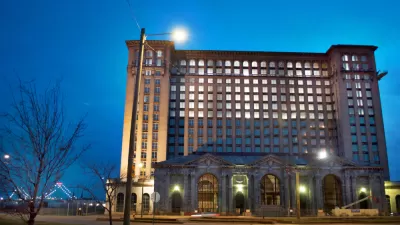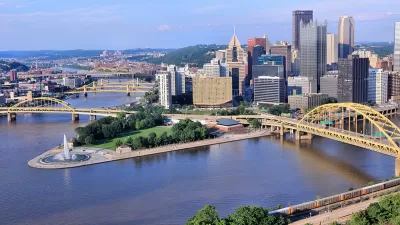The Massachusetts Avenue Project in Buffalo's West Side is an urban fish farm designed to be a completely self-sustaining ecosystem, with food for the fish grown on the premises.
The farm includes six greenhouses growing a wide variety of herbs, plants and vegetables, as well as tilapia and perch. On top of that, there are five beehives, three houses with hens and ducks, and several outdoor pens with goats, rabbits and turkeys. The farm marks a shift in land use in Buffalo as vacant land is being transformed to serve community needs and create new business opportunities.
Jesse Meeder, owner of the farm, says the reason they opened on the West Side was to be nearer to low-income community members who had little access to healthy food.
"We're definitely here because of those issues," Meeder said of the crime and poverty around him. "It's a great neighborhood - there are 30 different languages spoken here - and we want to invest in it and make it better."
VIDEO at The Buffalo News.
Thanks to Nate Neuman
FULL STORY: Working to change the food system: Project aims to educate, feed a neighborhood in need

Planetizen Federal Action Tracker
A weekly monitor of how Trump’s orders and actions are impacting planners and planning in America.

Maui's Vacation Rental Debate Turns Ugly
Verbal attacks, misinformation campaigns and fistfights plague a high-stakes debate to convert thousands of vacation rentals into long-term housing.

Restaurant Patios Were a Pandemic Win — Why Were They so Hard to Keep?
Social distancing requirements and changes in travel patterns prompted cities to pilot new uses for street and sidewalk space. Then it got complicated.

In California Battle of Housing vs. Environment, Housing Just Won
A new state law significantly limits the power of CEQA, an environmental review law that served as a powerful tool for blocking new development.

Boulder Eliminates Parking Minimums Citywide
Officials estimate the cost of building a single underground parking space at up to $100,000.

Orange County, Florida Adopts Largest US “Sprawl Repair” Code
The ‘Orange Code’ seeks to rectify decades of sprawl-inducing, car-oriented development.
Urban Design for Planners 1: Software Tools
This six-course series explores essential urban design concepts using open source software and equips planners with the tools they need to participate fully in the urban design process.
Planning for Universal Design
Learn the tools for implementing Universal Design in planning regulations.
Heyer Gruel & Associates PA
JM Goldson LLC
Custer County Colorado
City of Camden Redevelopment Agency
City of Astoria
Transportation Research & Education Center (TREC) at Portland State University
Jefferson Parish Government
Camden Redevelopment Agency
City of Claremont





























